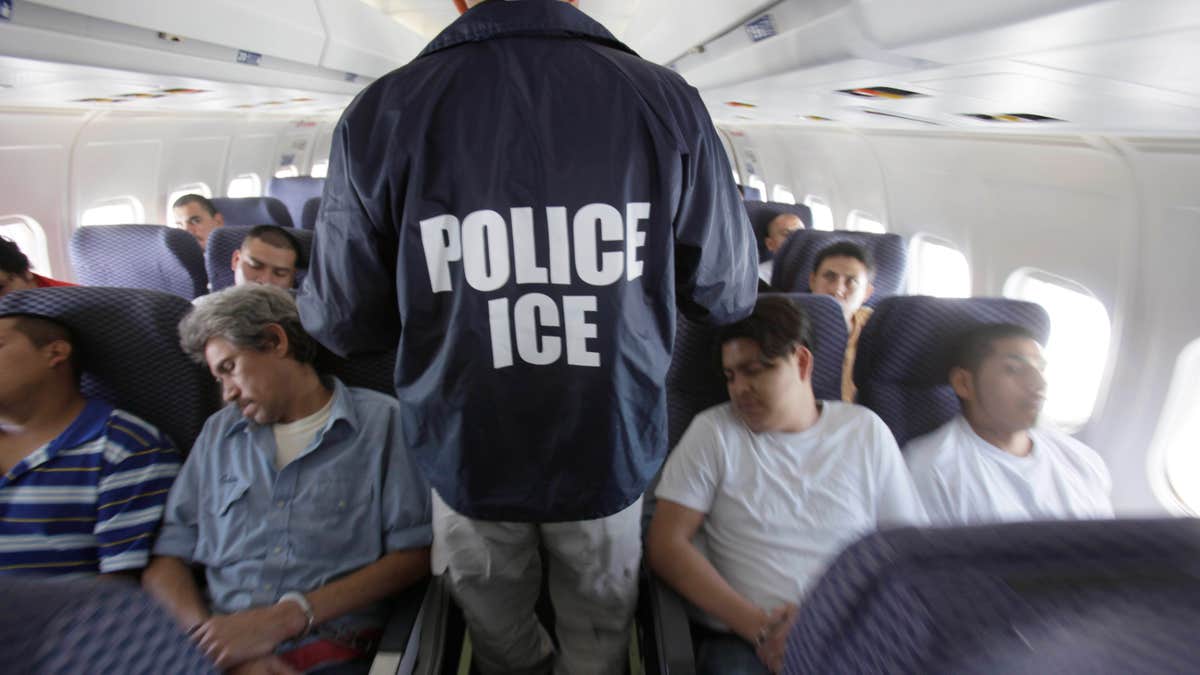
May 25, 2010: An Immigration and Customs Enforcement agent walks down the aisle among shackled Mexican immigrants a boarded a U.S. Immigration and Customs Enforcement charter jet for deportation in the air between Chicago, Il. (AP)
An internal watchdog report says millions of dollars may have been saved through better management and by filling empty seats on U.S. Immigration and Customs Enforcement charter flights carrying detained immigrants to their home countries.
The Department of Homeland Security’s Inspector General said flights – which returned detainees mainly to Central America, South America and the Caribbean – flew partially empty more than a third of the time. Filling seats could have saved $41.1 million, the report says.
The Inspector General audit of ICE’s Air Operations found that more than 2,100 flights from October 2010 through March 2014 flew with less than 80 percent of seats filled. Those flights, accounting for 37 percent of the 5,699 flights reviewed, cost ICE about $116 million altogether.
ICE spokeswoman Gillian M. Christensen said in a statement that the agency strongly disagrees with the report's use of empty seats on flights as a measure of efficiency.
"Delaying the removal of individuals in order to fill empty seats causes the agency to incur ancillary costs that may exceed the costs of seats," she said.
ICE Air pays on average $8,419 per flight hour for charter flights, regardless of the number of passengers, according to the report. During the 3 ½ year view period, ICE spent $598 million on air operations, of which $464 million went to charter flights.
The report acknowledged that various factors prevent ICE aircraft from flying at full capacity, including responding to special requests and varying restrictions imposed by receiving countries on the frequency of flights and the number of deportees that can be repatriated on each.
But even when a flight was limited to 120 seats because of country restrictions, ICE used only 90 at times, the report said.
Other factors, such as the availability of detention space and the amount of time individuals may be held in ICE custody, also must be taken into consideration when flying detainees, ICE officials said.
The report criticized the agency for missing information, including 23,597 detainees listed as being picked up or dropped off at locations not on the flight route, as well as operations staff that were not properly trained. The report concluded that ICE completed its mission of transporting 930,435 detainees but that "ICE Air does not capture complete and accurate data essential to support operational decisions."
The report urges ICE to perform more training, obtain better data and carry out a comprehensive assessment on detainee transport. ICE officials have agreed with a number of the report’s recommendations.
Christensen said part of the problem was the audit came when ICE Air was in the middle of efforts to consolidate and was in the process of addressing issues raised in the report. Since then, she said, "the agency has made great strides."
The Associated Press contributed to this report












































